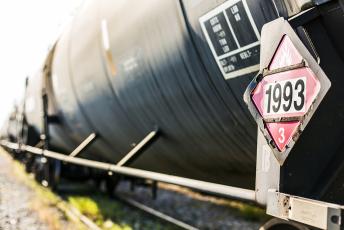WASHINGTON, D.C – American Fuel & Petrochemical Manufacturers (AFPM) yesterday filed comments with the Surface Transportation Board (STB) in response to their proposed rule that would require railroads to report service metrics and require the use of reciprocal switching agreements to address insufficient rail service. As proposed, the rule would limit access to reciprocal switching to rail customers served by a single railroad. Even then, these customers, known as ‘captive shippers,’ will only receive access after proving they’ve felt the prolonged impacts of unreliable and poor rail service. While AFPM welcomes the reporting of service metrics that will shine a light on poor rail service, reciprocal switching should be available in all instances where there is a lack of competition—a dire reality the STB has repeatedly recognized in the current rail market.
AFPM has urged the STB to continue pursuing broad access to reciprocal switching for all captive shippers to reintroduce competition in the rail industry on a wide scale. Absent such access, the current proposal still has the potential to improve service—provided the final rule addresses some key concerns.
Rob Benedict, AFPM Vice President of Petrochemicals and Midstream, said that, “in the absence of broad access to reciprocal switching based solely on lack of competition, the proposed service-based approach must be set appropriately. If the thresholds for railroad performance are set too low, it can be sure the railroads will improve no more than required, incentivized to do ‘just enough’ to avoid reciprocal switching. The STB must set targets that incentivize good service, rather than codifying the poor service of the past.”
Learn more about why reciprocal switching is needed to promote competition here.
You can read AFPM’s full comments here.
The American Fuel & Petrochemical Manufacturers (AFPM) is the leading trade association representing the makers of the fuels that keep us moving, the petrochemicals that are the essential building blocks for modern life, and the midstream companies that get our feedstocks and products where they need to go. We make the products that make life better, safer and more sustainable — we make progress.


